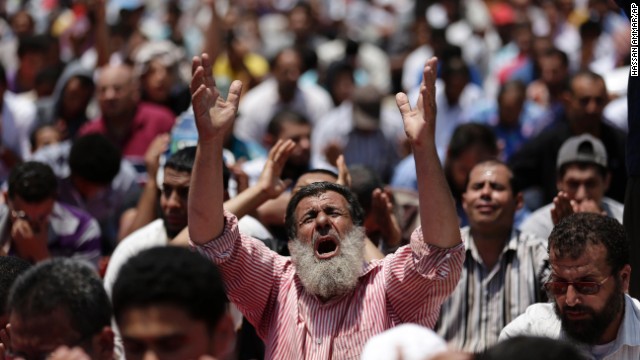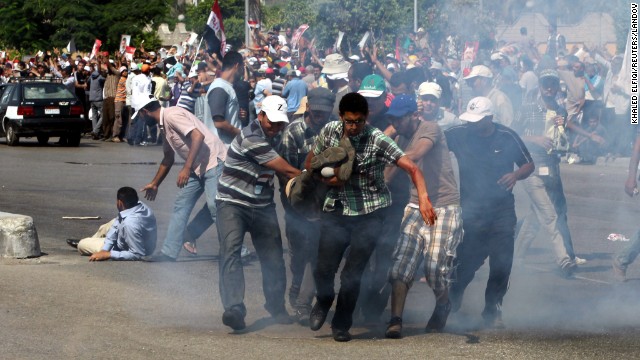 |
| From CNN.com |
Since that time news has spread that the military began rounding up individuals from the Muslim Brotherhood and the courts declared that Morsi cannot leave the country because he is under investigation for ordering deadly action against the people.
In the US, journalists argue over the semantics of a "coup" and what this might mean for US-Egyptian relations.
Meanwhile, the Muslim Brotherhood and Morsi decry the "coup" and pledge to fight for the legitimate democratically elected President. Yesterday (July 4th) violent clashes erupted in the Sinai and the Muslim Brotherhood called for more protests today, and some Islamic extremists threatened retaliation against anti-Morsi supporters.
| From CNN.com |
 |
| From CNN.com |
This morning the African Union suspended Egypt .
So what does this all mean for the importance of Archaeology. We must remember that Egypt's biggest commodity is its deep archaeological record. I usually dislike discussing material culture as a commodity, but the fact remains that we do "sell" culture for entertainment (historic sites, museums, historical books, documentaries, and historic tours).
 |
| Taken from http://www.dailynewsegypt.com |
With Egypt in the midst of violence and the US Embassy closed to non-essential personnel, as well as the notice for Americans to leave the country (and I am assuming this is true for those from the European Union), Egypt's tourism economy is at a standstill. According to Egypt Independent, only 219 tourists visited the Egyptian Cairo Museum on June 30, 2013 and just over 500 visited the Giza Pyramids (http://www.egyptindependent.com/news/219-tourists-visited-egyptian-museum-30-june)
I didn't mention in my last post that before the protests, employees at the Egyptian Cairo Museum went on a strike because they weren't adequately paid. This brings into question the upkeep of material thousands of years old.
The Egyptian Cairo Museum is a government institution (many countries have a ministry of culture so this is not strange) and as a result government funding has dropped significantly. I have tried to look at the museum's website for updates, but not surprisingly, the server has been down for days. What this also means is that all the historical resources housed in the museum are closed off to outsiders.
 |
| Screenshot of the official website for the Egyptian Museum |
I am interested to know what UNESCO is thinking at this moment.
In case I didn't mention it before, in the last year archaeological sites throughout Egypt have been looted, mostly due in part with the lack of security that I mentioned in the previous post. Here is a video from April 2013 discussing the increase looting as well as a snippet on the antiquities trade (which I tend to focus on a lot).
Below is a video from the Capitol Archaeological Institute at The George Washington University also discussing the same thing
No comments:
Post a Comment